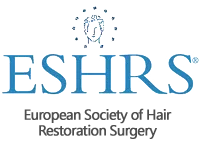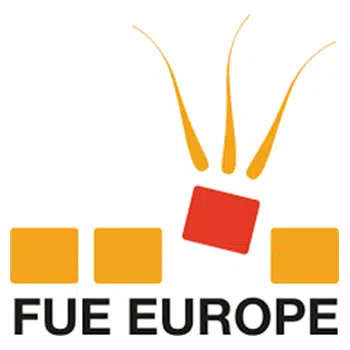Vegan Hair Loss: Should You be Worried?
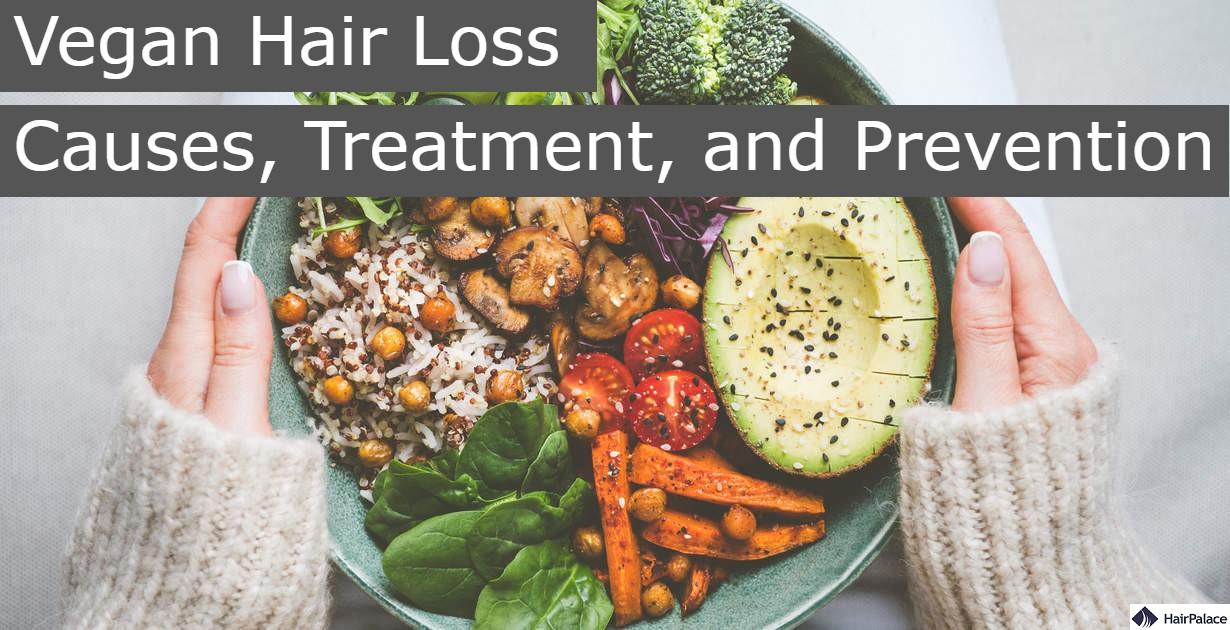
Vegan hair loss can occur if a vegan diet lacks essential nutrients that are critical for hair health, such as protein, iron, zinc, vitamin B12, and omega-3 fatty acids.
Without adequate intake of these nutrients, hair follicles may weaken, leading to thinning hair or hair loss.
To prevent this, vegans should ensure their diet includes a variety of nutrient-rich foods or consider supplements to meet their nutritional needs.
Join us as we explore the underlying causes behind this hair loss, and find ways to reverse it and restore healthy hair.
We aim to provide a comprehensive guide for vegans to sustain a head full of healthy hair.
- Can a vegan diet cause hair loss?
- Prevention
- Vegetarian hair loss solution
- Before and after
- Conclusion
Can a vegan or vegetarian diet cause hair loss in males?
A vegan or vegetarian diet, when not properly planned, can lead to a decline in essential vitamin intake.
This causes nutritional deficiencies which may contribute to hair loss.
Key nutrients important for hair health include hair protein, iron, zinc, vitamin D, omega-3 fatty acids, and certain other vitamins and minerals.
Let’s look at how a lack of these nutrients in vegan or vegetarian diets might contribute to hair fall.
Vegan and vegetarian hair loss causes
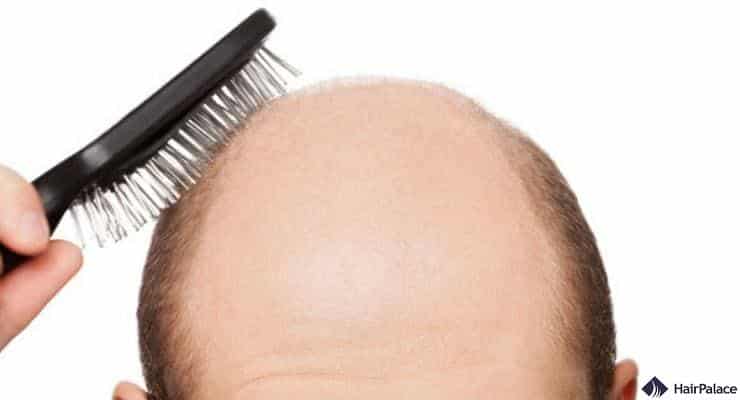
A vegan diet often fails to provide all the nutrients needed to maintain a well-functioning body.
Here are some of the most common vegan diet-related issues and deficiencies that lead to hair thinning.
1. Protein deficiency
Hair is primarily made of protein (keratin), and inadequate protein intake can weaken hair, leading to hair loss.
Vegans and vegetarians need to ensure they’re getting enough protein from vegan sources.
These include foods like lentils, beans, tofu, soy products and quinoa.
2. Iron deficiency
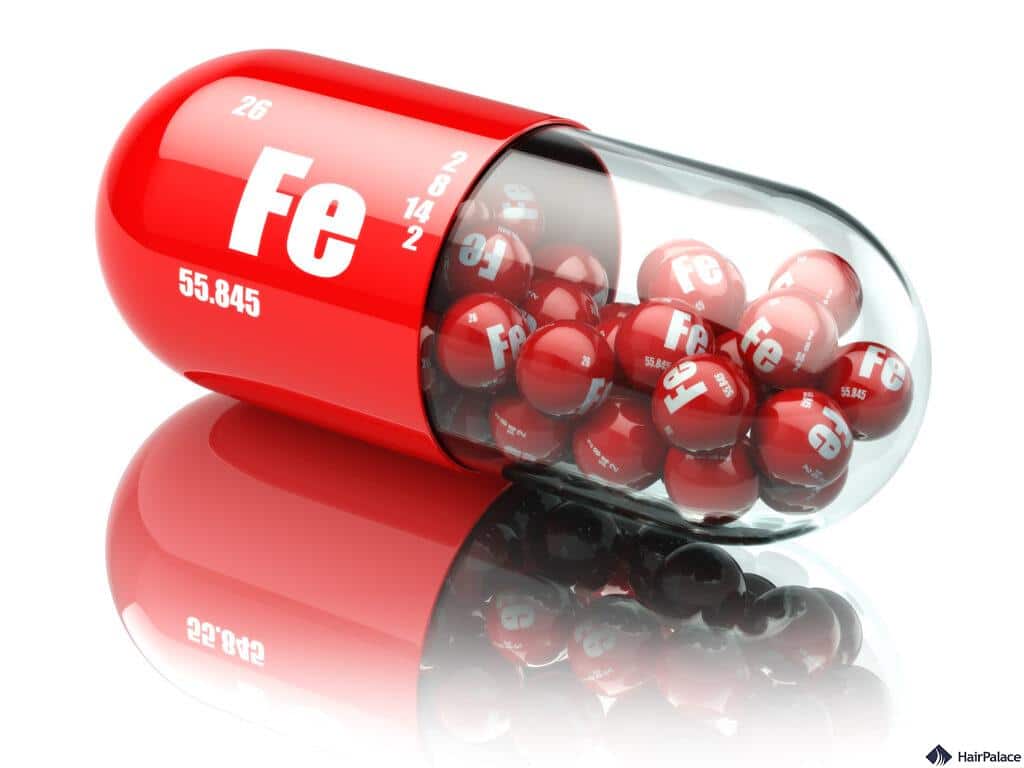
Iron deficiency is a well-known cause of hair loss.
Plant-based diets can be lower in heme iron, which is more easily absorbed and is found in animal products.
Non-heme iron from plant sources is less easily absorbed, but its absorption can be enhanced by consuming vitamin C-rich foods.
Furthermore, taking iron supplements can also successfully resolve iron deficiencies.
3. Zinc deficiency
This mineral is vital for hair growth and repair. Zinc deficiency can lead to hair loss.
While zinc is found in a variety of foods, vegetarians and vegans might need to pay extra attention to get enough from plant sources like nuts, seeds, and legumes.
4. Vitamin D deficiency
Low vitamin D levels are linked to alopecia, a technical term for hair loss. Vitamin D is mostly obtained from sun exposure, but it can also be found in fortified foods and supplements.
5. Omega-3 Fatty Acids
These healthy fats are important for hair health. Flaxseeds, chia seeds, walnuts, and hemp seeds are good plant-based sources.
6. Other mineral and vitamin deficiencies
B vitamins (especially B12), vitamin E, and selenium are also important for hair health.
Vitamin B12, in particular, can be challenging to get in adequate amounts from a vegan diet without supplements or fortified foods.
Vegan hair loss supplements for prevention
Preventing hair loss on a vegan diet involves ensuring you’re getting a well-balanced intake of essential nutrients that support hair health.
Here are several strategies to help prevent hair loss and promote healthy hair growth on a vegan diet.
- Ensure Adequate Protein Intake: Hair is made of protein, making adequate protein intake crucial for hair health. Include plant-based protein sources in your diet, these can be things such as lentils, kidney beans, quinoa, tempeh, seltan or chickpeas and tofu.
- Iron-Rich Foods: Since iron is critical for hair growth, focus on including plenty of iron-rich plant foods in your diet. Pair these foods with vitamin C-rich fruits and vegetables to enhance iron stores.
- Zinc: This mineral is essential for hair repair and growth. Include zinc-rich foods such as pumpkin seeds, sesame seeds, lentils, chickpeas, and quinoa.
- Vitamin D: Consider supplementing with vitamin D2 (ergocalciferol) or vitamin D3 (cholecalciferol) derived from lichen, which is vegan-friendly, especially if you have limited sun exposure.
- Omega-3 Fatty Acids: Omega-3s are important for a healthy scalp and hair. Include sources of ALA (alpha-linolenic acid), a type of omega-3 fatty acid found in flaxseeds, chia seeds, hemp seeds, and walnuts.
- B Vitamins: Ensure adequate intake of B vitamins, especially B12, which is crucial for overall health and can impact hair health. Vegans should consider fortified foods or a B12 supplement.
- Other Nutrients: Selenium and vitamin E are antioxidants that can help protect your hair follicles from damage. Include nuts (especially Brazil nuts for excess selenium), seeds, and green leafy vegetables in your diet.
- Varied Diet: Emphasize a diverse range of fruits, vegetables, whole grains, nuts, seeds, and legumes in your diet to cover all your nutritional bases.
- Stay Hydrated: Adequate hydration is vital for maintaining healthy hair, as it supports the health of hair cells and promotes hair growth.
- Reduce Stress: Chronic stress can contribute to hair loss. Incorporate stress-reduction techniques such as exercise, meditation, yoga, or deep-breathing exercises into your routine.
Vegetarian hair loss solution
If your preventative measures were unsuccessful and you already suffer from noticeable hair loss, there’s no need to worry.
There are several ways to treat hair loss, whether topical hair loss medication or surgical and non-surgical treatment options.
- Minoxidil: Increases blood flow to the hair follicles, improving their function and stimulating hair growth. Available over the counter in various formulations, including liquid, foam, and shampoo.
- PRP therapy: PRP therapy is an innovative treatment to combat hair loss by harnessing the body’s natural healing processes.
- Hair transplant surgery: Follicular Unit Extraction (FUE) is a type of hair transplant surgery that involves individual follicular unit extraction from a donor area of the scalp.
Vegan hair loss before and after
Listen to Kai-Lee as she explains how her plant-based diet almost made her go bald.
Once she started eating meat again she managed to improve hair growth rate and achieve thicker hair.
It’s important to remember that the problem stems from a lack of a balanced diet and adequate protein intake.
However, despite what the video suggests, you don’t necessarily have to eat meat. It’s possible to get enough protein from plant-based foods as well.
The key to regaining your hair is a balanced diet, not meat.
Conclusion
A vegetarian or vegan diet offers several benefits from lowered risk of heart disease to a lower risk of developing cancer.
However, vegetarian and vegan diets also pose certain risks, such as an increased chance of nutrient deficiencies and damaged hair.
Plant-based eaters are at a major risk of mineral deficiencies and they often lack enough calories and energy levels to maintain healthy hair growth.
Thankfully, with a well-planned diet and the use of supplements, it’s possible to get adequate nutrient intake solely from vegan food sources.
The hair loss often resolves on its own once the deficiency has been addressed. If you have concerns about your hair loss, it’s always best to consult with a medical professional.
Last medically reviewed on July 23rd, 2024
- Deloche C, Bastien P, Chadoutaud S, Galan P, Bertrais S, Hercberg S, de Lacharrière O. Low iron stores: a risk factor for excessive hair loss in non-menopausal women. Eur J Dermatol. 2007 Nov-Dec;17(6):507-12. doi: 10.1684/ejd.2007.0265. Epub 2007 Oct 19. PMID: 17951130.https://pubmed.ncbi.nlm.nih.gov/17951130/
- Rushton DH. Nutritional factors and hair loss. Clin Exp Dermatol. 2002 Jul;27(5):396-404. doi: 10.1046/j.1365-2230.2002.01076.x. PMID: 12190640.https://pubmed.ncbi.nlm.nih.gov/12190640/
- Gokce N, Basgoz N, Kenanoglu S, Akalin H, Ozkul Y, Ergoren MC, Beccari T, Bertelli M, Dundar M. An overview of the genetic aspects of hair loss and its connection with nutrition. J Prev Med Hyg. 2022 Oct 17;63(2 Suppl 3):E228-E238. doi: 10.15167/2421-4248/jpmh2022.63.2S3.2765. PMID: 36479473; PMCID: PMC9710406.https://pubmed.ncbi.nlm.nih.gov/36479473/
- Yuasa M, Matsui T, Ando S, Ishii Y, Sawamura H, Ebara S, Watanabe T. Consumption of a low-carbohydrate and high-fat diet (the ketogenic diet) exaggerates biotin deficiency in mice. Nutrition. 2013 Oct;29(10):1266-70. doi: 10.1016/j.nut.2013.04.011. PMID: 24012088.https://pubmed.ncbi.nlm.nih.gov/24012088/
- Abdel Rahman SH, Mohammed Salem R, Hassan Sabry J. Biotin Deficiency in Telogen Effluvium: Fact or Fiction? J Clin Aesthet Dermatol. 2020 Mar;13(3):37-40. Epub 2020 Mar 1. PMID: 32308796; PMCID: PMC7159307.https://pubmed.ncbi.nlm.nih.gov/32308796/
- Scientific Opinion on Dietary Reference Values for biotin by EFSAhttps://www.efsa.europa.eu/en/efsajournal/pub/3580
- Hornfeldt CS. Growing evidence of the beneficial effects of a marine protein-based dietary supplement for treating hair loss. J Cosmet Dermatol. 2018 Apr;17(2):209-213. doi: 10.1111/jocd.12400. Epub 2017 Sep 16. PMID: 28921826.https://pubmed.ncbi.nlm.nih.gov/28921826/
- Foster M, Chu A, Petocz P, Samman S. Effect of vegetarian diets on zinc status: a systematic review and meta-analysis of studies in humans. J Sci Food Agric. 2013 Aug 15;93(10):2362-71. doi: 10.1002/jsfa.6179. Epub 2013 May 29. PMID: 23595983.https://pubmed.ncbi.nlm.nih.gov/23595983/

